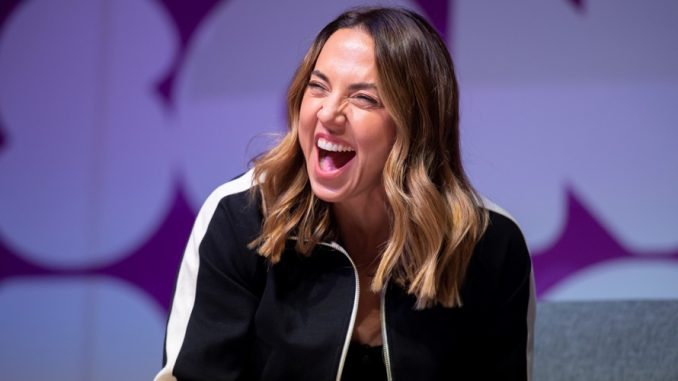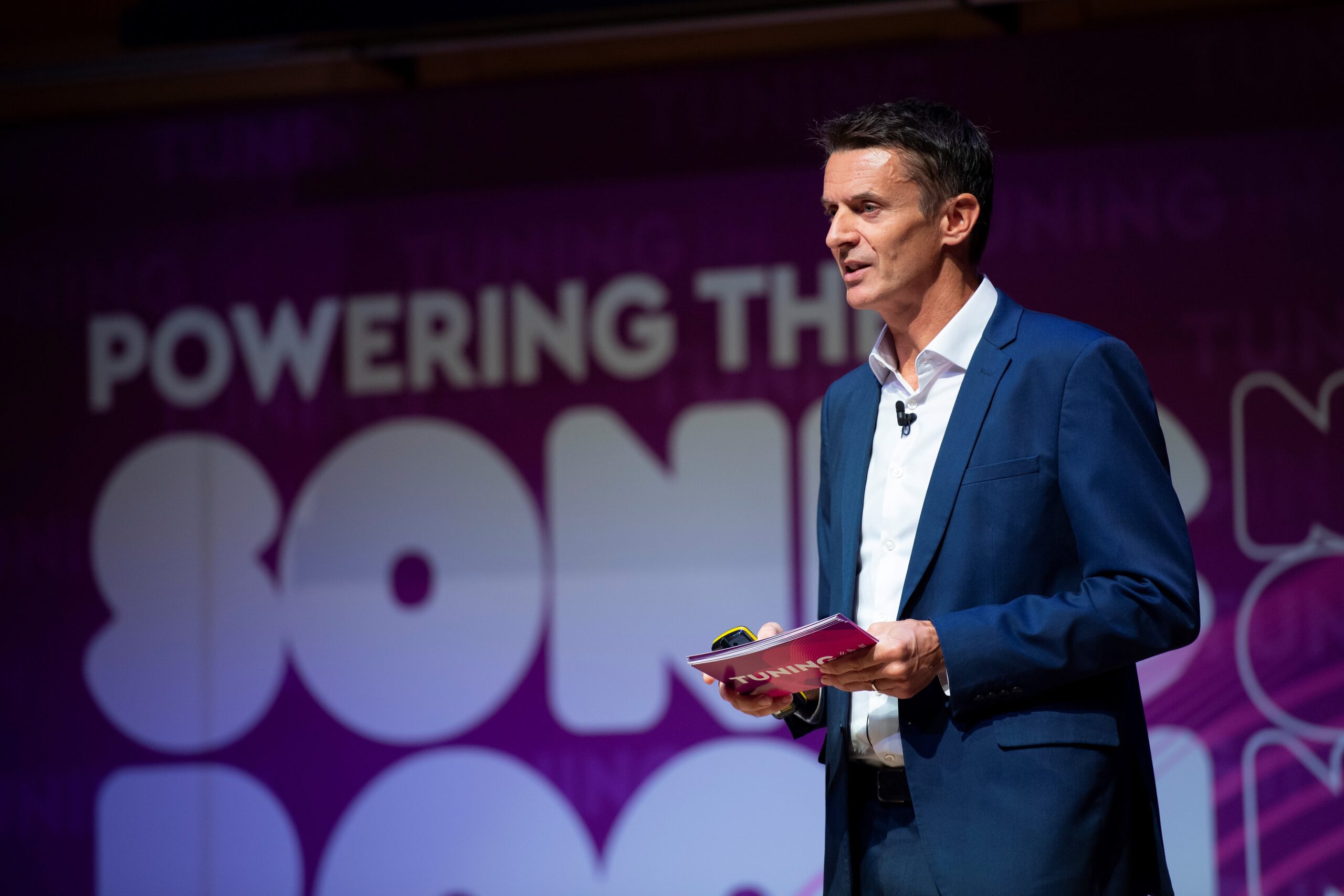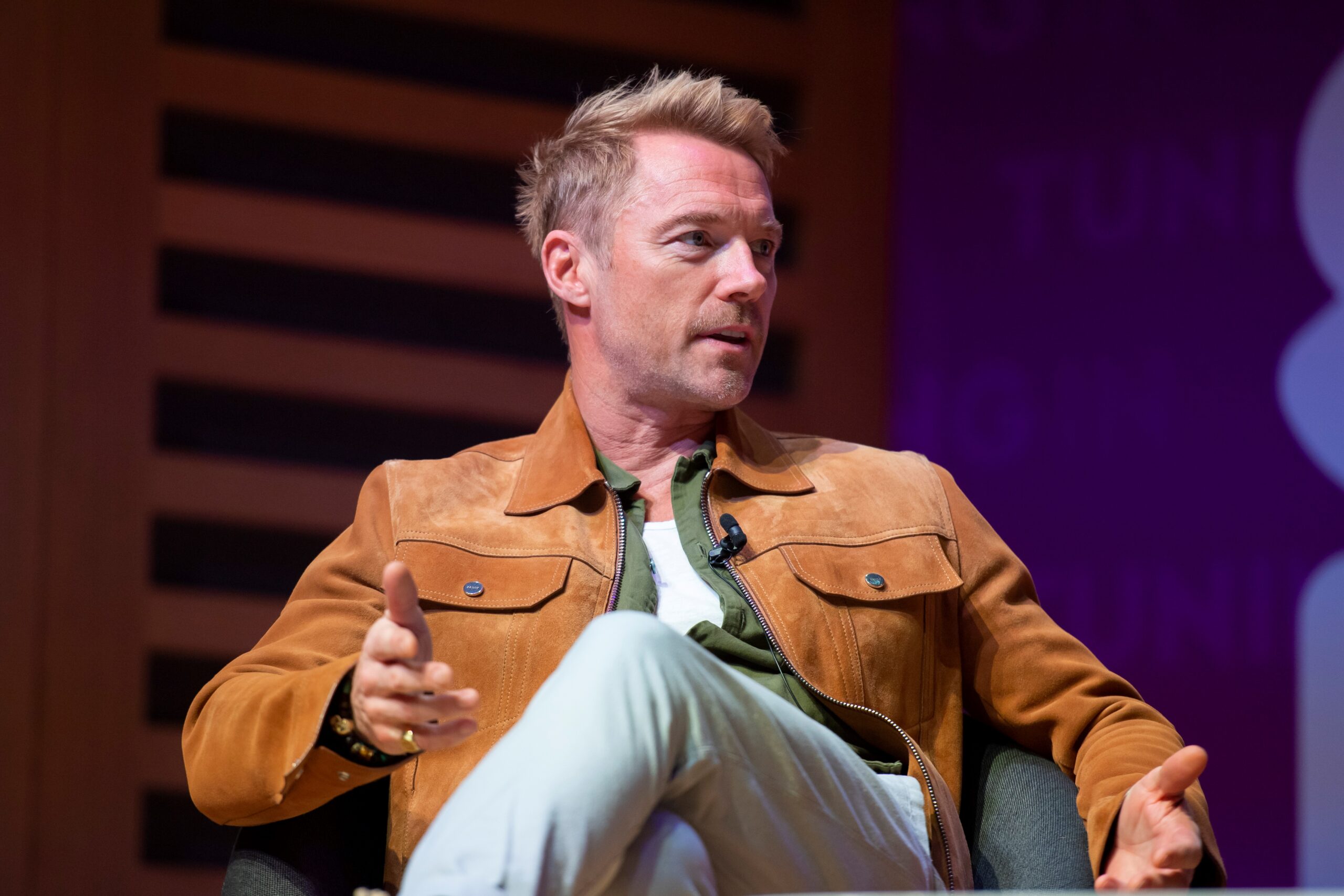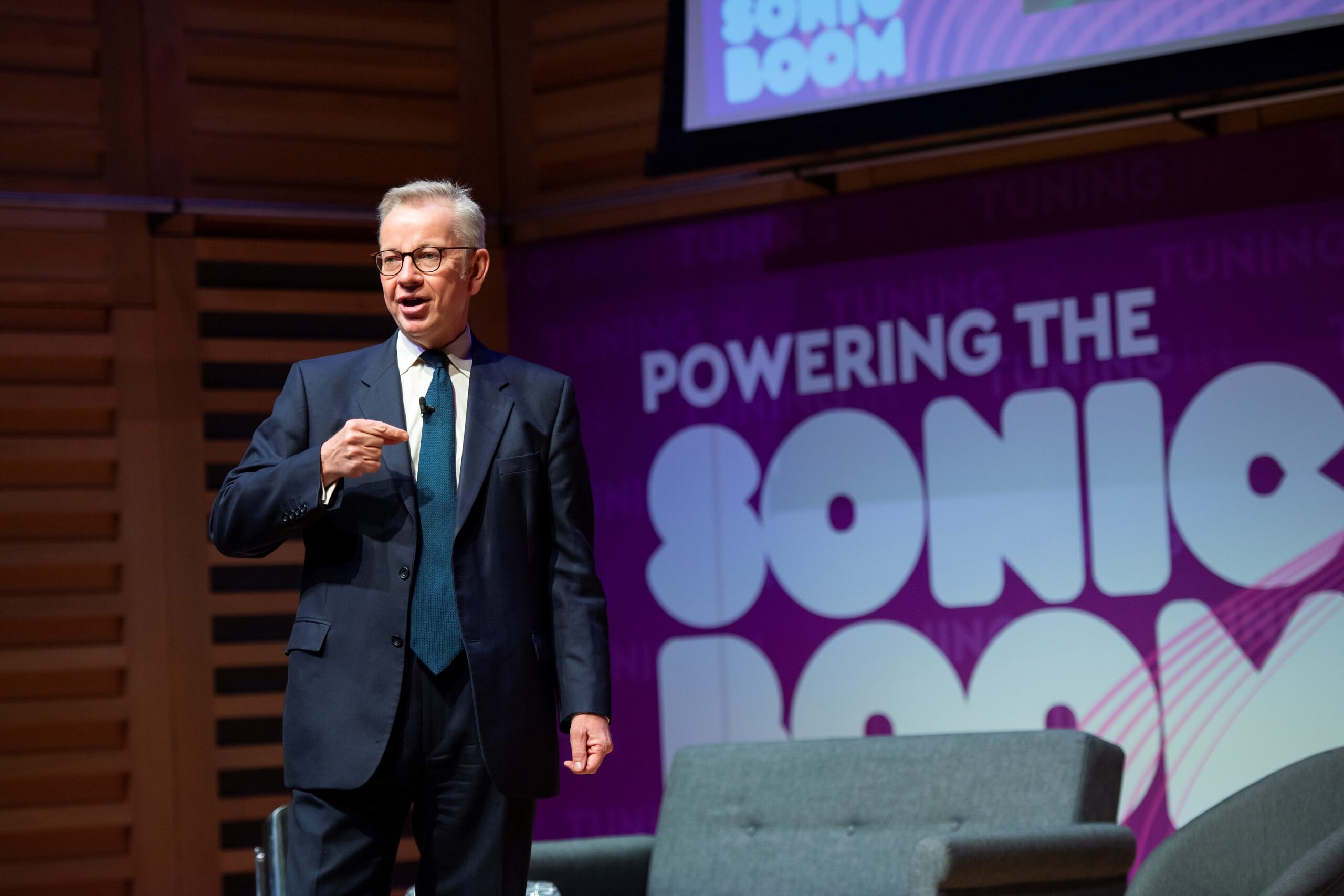
Over 300 audio, advertising and media industry executives visited King’s Place in London yesterday for Radiocentre’s annual Tuning In conference.
Under the theme Powering the Sonic Boom, sessions focussed on three areas: the effectiveness of radio advertising, its rapid pace of innovation and the central, positive role radio play in our culture.
Hosted by Magic Radio’s Neev Spencer, the morning was kicked off by Radiocentre Chief Executive Matt Payton, who declared that the industry has entered one of the most exciting and innovative phases in its history, given the huge changes triggered by digital listening and the rise of smart speakers, podcasts and streaming.

“Innovation in audio is creating more opportunities than ever for audiences and advertisers,” he said. “Radio’s power and positivity and its trusted role is something that is becoming more attractive to our stakeholders than it’s ever been, whether you are advertisers, politicians or pop stars,” he added.
Magic Breakfast stars Ronan Keating and Harriet Scott took to the stage, to discuss their partnership with travel brand On The Beach. In a session hosted by Bauer’s Chief Content Officer Lucie Cave, the presenters spoke with On The Beach’s Marketing Director Steve Seddon, about how the brand is embedded into the show.

Later in the event, former Cabinet minister Michael Gove gave a political keynote. The MP revealed his favourite LBC radio broadcaster – Nick Ferrari – but also looked ahead at the challenges the new government faced and the role media will have to play. Underlining commercial radio’s strengths, Radiocentre Planning Director Mark Barber revealed how commercial audio listening is growing at a headline level, within which “Commercial radio audiences are on a roll” with RAJAR figures from Q2 this year demonstrating how commercial stations have over taken the BBC’s audience share for first time since the 1990s.

Giving a taster of the new Generation Audio research soon to be launched by Radiocentre, Mark revealed that audio is increasingly being used to meet a new need state – as a means of keeping people company. “There’s a growing need for companionship caused by changing living arrangements,” he explained.
Expanding on the theme of radio’s advertising effectiveness, Katy Harkness, Strategy Director at Mediacom, offered insight into the topic of attention. Katy explained that radio is a great medium for gaining the listener’s attention, whether that is the low involvement, passive attention that humans give 95% of the time – useful for brand messages – or the 5% of intense, active attention – powerful for encouraging consumers to take rational decisions.
Meanwhile, Global’s Creative Director Jo McCrostie and Strategy Director Ailsa MacKenzie demonstrated how audio is the best medium for garnering attention, as humans are permanently listening and can process sounds on a variety of levels.
Laurence Harrison, Director of Automotive Partnerships at Radioplayer, discussed how radio will retain its crucial role at the centre of in-car entertainment. New research revealed that 80% of people who are planning to buy a car in the next 12 months are less likely to buy a car without a radio. He discussed Radioplayer’s work with car manufacturers such as BMW to ensure radio stations are easily accessible on the car dashboard. He added that the main thing broadcasters can do to help matters is to provide the metadata for their stations – such as the digital logo – so they can be displayed on the in-car Radioplayer.
A fascinating session by HSBC UK Head of Brand Marketing Sarah Mayall and Wunderman Thompson Creative Director Mike Watson revealed the power of radio advertising in promoting their purpose-driven campaign to address the vicious circle of banking when homeless.
And David Courtier-Dutton, the CEO of SoundOut, Hannah Charman, Co-founder of Sister Music and Kim Aspeling, Director of Creative Production at A Million Ads each spent five minutes looking to the future by explaining their plans to transform radio advertising.
The event ended on an even higher note with a fascinating insight into the role radio plays for major music artists, as Spice Girls pop icon Melanie C – AKA Sporty Spice – talked with Angellica Bell about how radio is still a “make or break” medium for every music artist. Summing up, Matt Payton said: “There’s a huge amount going on in the audio sector and radio is absolutely at the forefront of this, representing the biggest share of commercial audio listening across all ages.
“Radio’s success is due to a combination of investment in content, new services, talent and the expansion of choice such as brand extensions on commercial radio and we have also seen investment in podcasts and digital audio.” He called all of this “Great news for
advertisers.”
Before the conference began, the audience paused for a moment of reflection and applause in recognition of the late Queen’s broadcasting legacy.
All presentations can be found on Radiocentre’s Youtube channel here.
